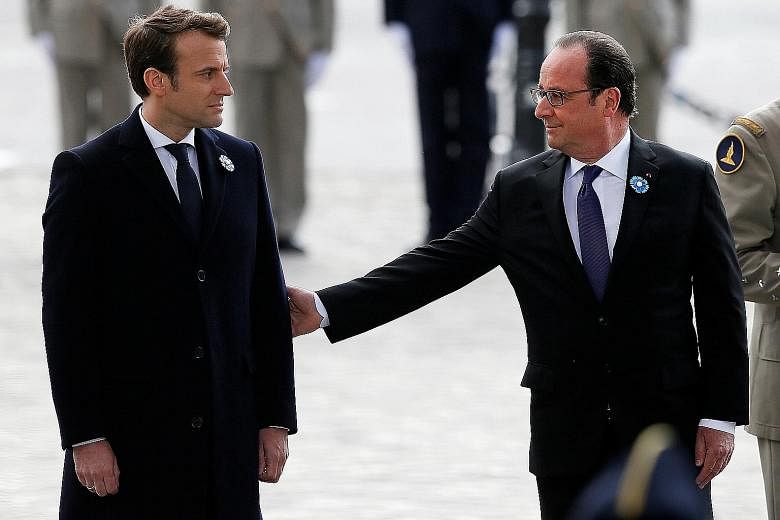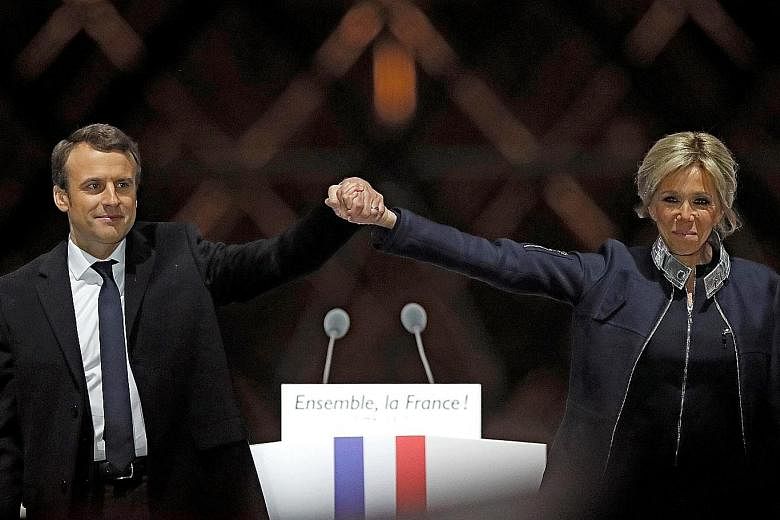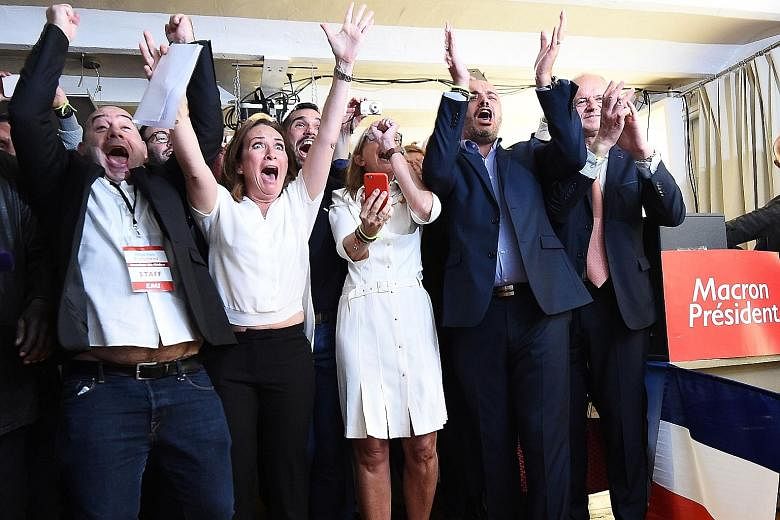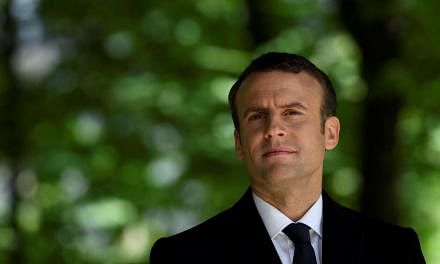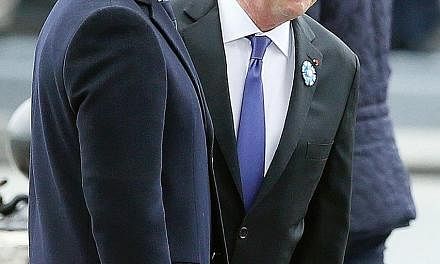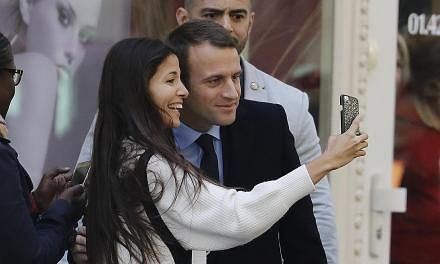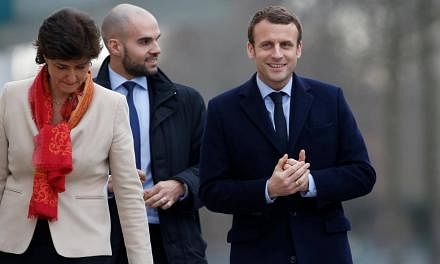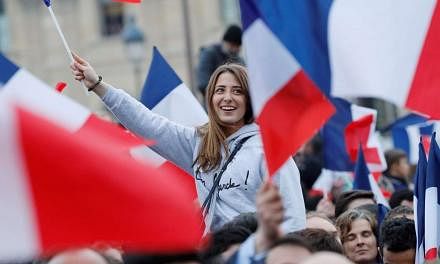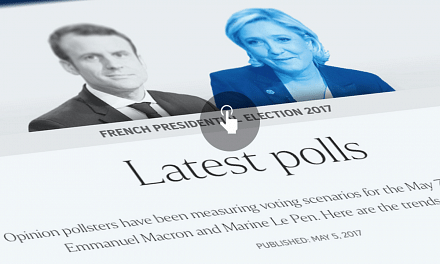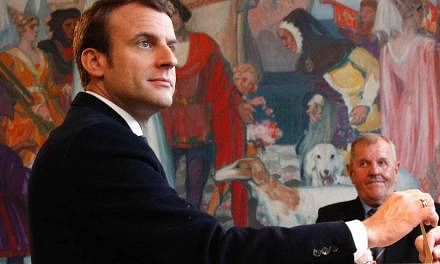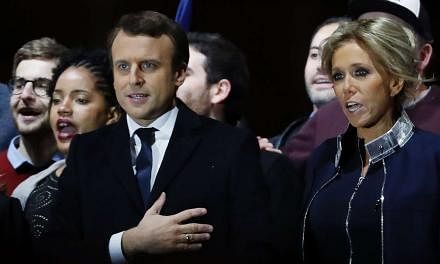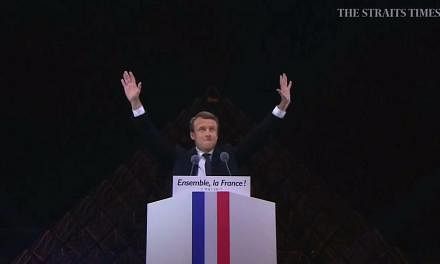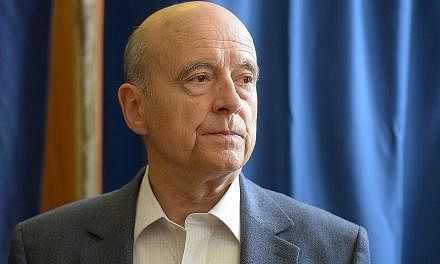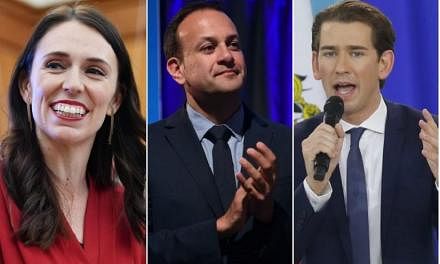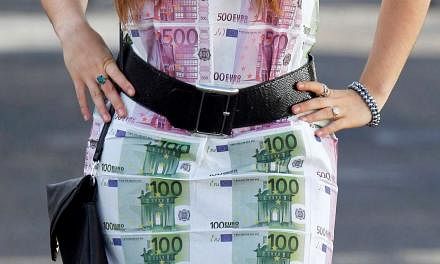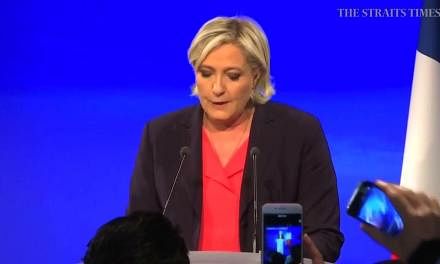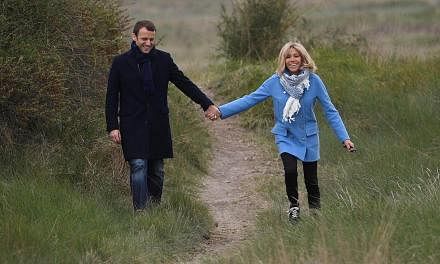France's President-elect Emmanuel Macron has used his victory speech to reassure those voters who did not support him that he understands their "anger, anxiety and doubt".
Speaking to tens of thousands of enthusiastic flag-waving supporters in Paris, the 39-year-old Mr Macron, who will soon become the country's youngest head of state since Napoleon Bonaparte more than two centuries ago, vowed to "calm people's fears, restore France's confidence, and gather all its people together to face the immense challenges facing us".
Although the margin of Mr Macron's electoral win was bigger than predicted - he defeated far-right leader Marine Le Pen of the National Front by winning 66.1 per cent of the votes on Sunday - he now has only a brief window of opportunity to consolidate his political agenda.
The fact that Ms Le Pen has lost so badly - her 33.9 per cent was much worse than the 40 per cent opinion polls predicted - means that the French elections have dispelled fears that the march of nationalists is unstoppable, and that a key European country has now voted to be ruled by a politician who continues to believe in free trade, open borders and closer European integration. Abroad, France's star has never shone brighter; Mr Macron is bound to exploit his positive reputation to the full.
Domestically, however, the picture is far murkier, since Mr Macron's problem is that he has no political party to speak of, and no obvious parliamentary majority on which he can rely to carry out his policies. And both have to be manufactured within the next few weeks, with parliamentary elections beckoning next month.
As president, he enjoys huge executive powers which he will shortly use to the full by appointing a new prime minister and Cabinet. The new government is unlikely to do a great deal.
It cannot pass legislation since the existing Parliament will be dissolved, and it cannot control the political agenda, as all decision-makers in Paris will be preoccupied with the parliamentary elections.
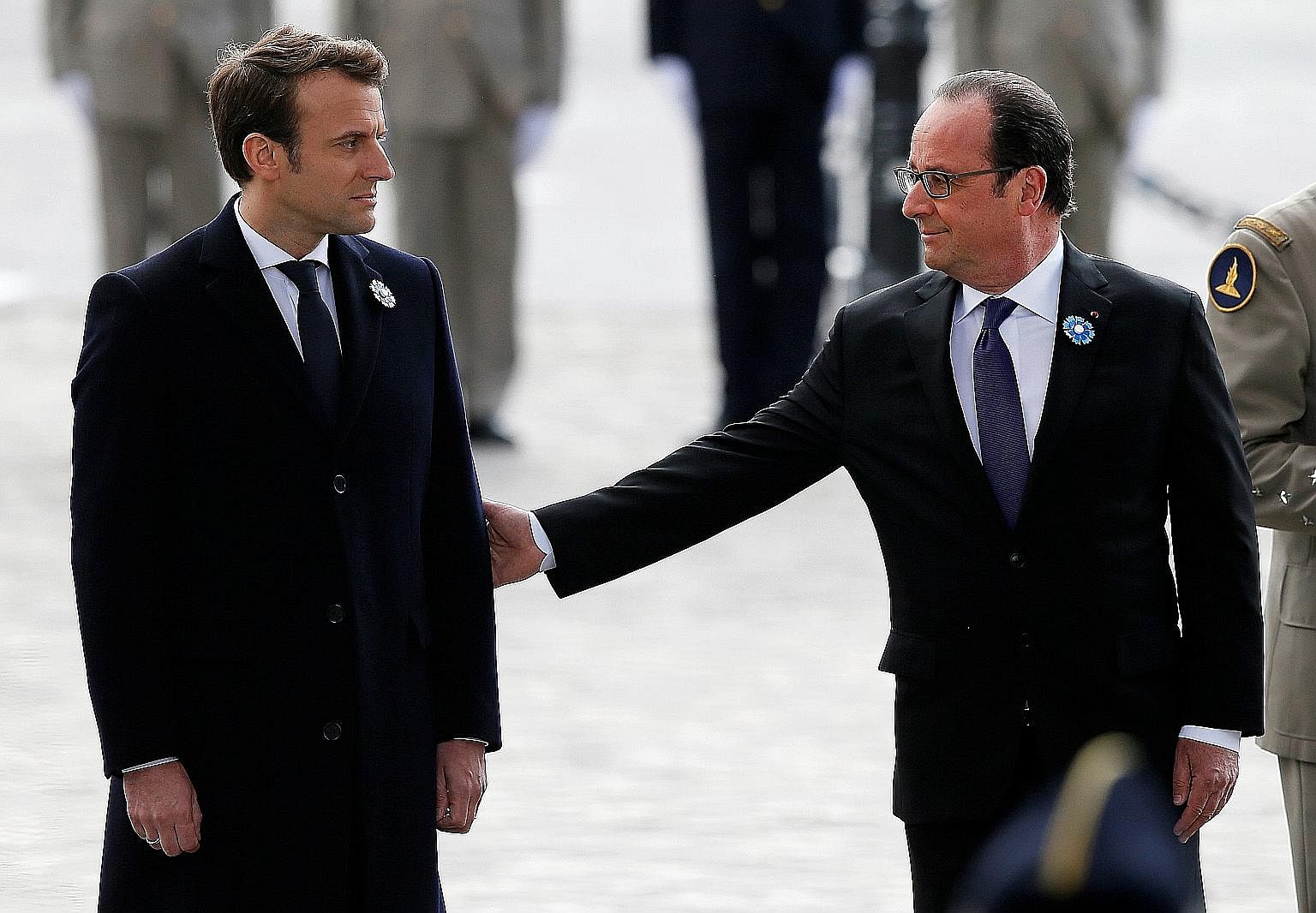
Nevertheless, Mr Macron's choice of prime minister will provide an early indication of the new president's policy options, and will set the tone of his domestic strategy.
Officially, the President-elect claims to be "utterly confident" of gaining an overall parliamentary majority next month, and some opinion polls appear to be confirming this, by projecting that Mr Macron's En Marche! movement may get 24 per cent of the votes in the first round of the parliamentary polls, enough to knock out many incumbent MPs from established parties.
But matters are unlikely to prove so straightforward. Mr Macron's advisers now have to find candidates to fill no fewer than 577 constituencies, hardly an easy task. They will also have to provide them with publicity material and policies, and all within the next two weeks.
And the same opinion surveys which put Mr Macron's supporters well ahead of their opponents also contain serious warnings for the incoming president. According to a poll published in Le Figaro, one of the country's top dailies, a full 69 per cent of the electorate wants the parliamentary elections to produce a different result from the presidential ones, and only one in five voters believes that Parliament should be of the same political stripe as the president. The odds are, therefore, high that Mr Macron will not end up with the legislature he wants.
Meanwhile, his political opponents have every incentive to regroup fast. The mainstream centre- right Republican and centre-left Socialist parties, both of which did badly in the presidential elections, will throw all they have into the coming ballots, for they know that if they do not do well next month, they risk disappearing altogether.
And the defeated National Front still enjoys its rock-solid 20 per cent electoral support. Ms Le Pen may have failed in her presidential bid, but she doubled the score achieved by her father, who also reached the second round of the presidential ballots back in 2002, so she can plausibly claim that she is on track to gain power in the future.
And the National Front leader is resourceful. Early indications are that she is thinking of renaming her party, and of ditching some policies which proved unpopular during the presidential campaign. The rebranding may not work, but the National Front remains a formidable fighting force; it moved from the political fringes to becoming an accepted major opposition movement.
Mr Macron knows he has to work hard to sustain national reconciliation. He is about to discover that he has to fight even harder to promote France's rejuvenation.

